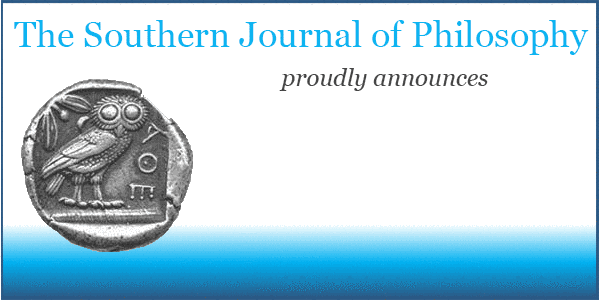Mini-Heap
Friday Mini-Heap:

- Women “do not trust that the department will protect them from faculty sexual misconduct” and “conservative views have been disrespected by faculty” — two of the findings of a recent climate survey of Yale’s Department of Philosophy
- How can state laws be changed to benefit the lives of children whose parents are divorced? — philosopher Donald Hubin (Ohio State) provides an answer
- What do admissions committees for philosophy PhD programs look for in transcripts? — Eric Schwitzgebel (Riverside) continues his series on getting into philosophy graduate programs
- The UK government’s strategy for reducing loneliness could be improved — suggestions from philosophers Kimberley Brownlee and David Jenkins (Warwick)
- Cross-cultural normative philosophy — a new series at PEA Soup
- What teachers of philosophy can learn from pro wrestling — from philosophy professor and pro-wrestling fan Douglas Edwards (Utica) (plus: matching philosophers to pro wrestling catchphrases)
- “I searched for an alternative to progressivism in part because I thought its intellectual foundations were incredibly weak. How does my new milieu fare in comparison? Well, there are quite a few problems.” — a philosophy graduate student who was drawn into the “Intellectual Dark Web” reflects on the movement
Mini-Heap posts appear when 7 or so new items accumulate in the Heap of Links, the ever-growing collection of items from around the web that may be of interest to philosophers.
The Heap of Links consists partly of suggestions from readers; if you find something online that you think would be of interest to the philosophical community, please send it in for consideration for the Heap. Thanks!



while I always enjoy your mini-heaps, I have to take objection to the way you’ve spotlighted Oliver here.
first — this is not that important — characterizing him as “a former IDW enthusiast” as you did on facebook is not an apt description and makes him sound like he’s exiting some political tribe. contrarianism is a crucial component of IDW, and characterizing people of this orientation as ingroup-bound like any other political clique can be a way of suggesting that the contrarian aspect isn’t real. I understand why you chose this wording, however.
second — more important — oliver has commented on this website a lot, and written a good deal about philosophy. perhaps I’m wrong, but I don’t think you’ve showcased his other work, such as his “line in the sand” article for quillette or his review of the “logic guys” argument for arc digital. it’s hard to not see this as selective attention to his views, especially if this criticism happens to coincide with some position or another that you may hold. you certainly don’t have any obligation to cover everything, but his writing is consistently high quality and I think this is somewhat unfair to him.
Is it just me, or is that Intellectual Dark Web article unavailable? I get a title when I click on the link, but no text.
Never mind, it was just me.
I’m having the same problem. Is there a magical solution?
Mr. Traldi decided to remove the essay.
The quote chosen for this article in the mini-heap is completely undercut by the rest of the article.
The article begins by arguing that vague, fuzzy concepts can be both vague and facts:
“Consider mountains. They are among philosophers’ favourite examples of vague entities: where exactly does Mount Everest begin or end, after all? But we don’t generally think this means that mountains aren’t real, or don’t matter. Likewise, the vagueness of generations is responsible for my “Xennial” status, but that doesn’t mean there’s no such thing as a generation, or that everybody is an Xennial now, or anything like that. Vagueness is just a fact of life, along with other facts.”
It then goes on to argue that because the biological concept of “natal woman” is also vague, or perhaps just (her words) “non-exact” therefore it is *not* a fact.
“This means the “natal woman” is a creature of ideologically motivated pseudo-science, rather than unalterable biological fact. The reanimated corpse of biological determinism is now trampling into far too many contemporary discussions of trans rights, and should be laid back to rest. Maybe millennials are deadly, but there are some things that should be killed off. ”
How can we square these two arguments?
I think the second quote is supposed to be supported by an appeal to the authority of second-wave feminist views on the social construction of gender, not by the fact that gender terms are vague.
That being said, the claim in that second quote seems too strong. What feminist thinkers have argued is that some secondary sex characteristics are influenced by social factors. But that doesn’t mean the concept of ‘natal woman’ is pseudo-scientific. The more scientific dictionary definitions of ‘male’ and ‘female’ are based on the type of gamete produced, not height, aggression levels, or even external genitalia.
https://www.bing.com/search?q=male&qs=n&form=QBRE&sp=-1&pq=male&sc=8-4&sk=&cvid=CB1AA21DFBCC4B0B83C72BA7AC0EFA2F
The concept of congenital potential to develop an ovary or a pair of testes is perfectly scientific. (So, of course, is the concept of congenital potential to develop an ovary and a testis, that is, the concept of a natal herm.)
Perhaps it is useful to distinguish “natal-female” (which is unproblematic for the reasons you mention) with “natal-woman”.
Hi Chris,
I suspect you’re right about Jenkins’ intent. But just to provide some context:
“It may feel desperately important to reinforce the old idea that there are, as a matter of unalterable biological fact, exactly two human sexes (no vagueness, no complexity, no dynamism): after all, once we stop reinforcing it, it will no longer be true. As de Beauvoir put it: “one is not born, but rather becomes, a woman”.
“This means the “natal woman” is a creature of ideologically motivated pseudo-science, rather than unalterable biological fact.”
It sounds here like Jenkins is applying de Beauvoir’s point that no one is born a woman to sex, in which case the claim is that no one is born female.
(It’s also untrue that the notion of “natal woman” presupposes a binary sex scheme. All that that requires is that female is one of the natal categories and that this category is lawfully related to womanhood in later life. That’s compatible with there being any number of sex categories.)
[Once again, I received an error – sorry then if there are duplicates!] So I tried this comment earlier, but I got an error, so it may not have gone through. Thank you Natty Dread and Chris for engaging! 🙂
Here was my response to Chris (though Natty Dread makes a similar point):
So I don’t think that’s quite the right distinction. I think the argument usually is that female = natal woman. This can be distinct from other ways of thinking about women, like “legal woman” (on documentation) or “social woman” (think Haslanger’s definition).
One of the reasons why we can’t simply move the language back one step to solve problems is that the movement against so-called “biological essentialism” (I very much disagree with the way this term is used; the strongest GC arguments are the opposite of essentialist) also seeks to undermine the concepts of male and female.
For instance, Mckinnon (2014) argues the following: “Biological aspects of gender tend to be privileged over social aspects, even though it’s now common for philosophers, among others, to view “male” and “female” as not representing natural kinds, but rather as social constructs based on family resemblances, as Ludwig Wittgenstein put it (Wittgenstein 2001, section 66ff). I take it that there are convincing reasons to think that “male” and “female” are not discrete categories, even biologically speaking.”
Of course, the problem with this line of reasoning is there really is no such thing as a “discrete category.” Everything, as Jenkins comments, is “fuzzy.” Even death was determined by committee. (there’s a good New Yorker piece on this). That doesn’t mean that humans don’t very much rely on our more-or-less rough categories, and it doesn’t mean that they have no value for our social and material existence. The burden of proof has to be on the “anti-biological essentialism” side that female/natal-woman is not both a) the concept on the basis of which the patriarchy was established; and b) as a result, the concept that we’ll need to undo patriarchal systems.
“I think the argument usually is that female = natal woman.”
This is the argument of the dictionary:
woman[ woo m-uh n ].
1. the female human being, as distinguished from a girl or a man.
2. an adult female person.
https://www.dictionary.com/browse/woman
I wonder if this discussion suffers from ambiguity between folk theories of sex and biological theories about it. In the passage Chris quotes, McKinnon seems to be talking about how society classifies people as ‘male’ or ‘female.’ She’s not claiming that the concept of genetic coding for the larger/smaller kind of gamete is problematic or scientifically useless. I would have expected evolution to establish connections between the genetic instructions for the production of gametes of a certain size and other traits. In various mammalian species, for example, we would expect regular (though not exceptionless) connections between the production of the larger gamete with the development of mammary glands. To figure in such regularities is prima facie evidence of natural kindhood.
Maybe this is a kind of biological “determinism” though it’s not to take a stand on how much, if any, of the variance between men and women in regards to any particular trait is explained by nature and how much by nurture.
One of Jenkins’ points is that biological determinism is “trampling” into discussions of trans rights. I don’t see what her argument is on this point. If our reproductive division of labor grounds bi-modal (not binary–not sure why we’re even talking about that) clusters of other behavioral traits, one can easily imagine some people congenitally identifying with the cluster that is more commonly associated with the other kind of gamete. This is one way that typically male and female behaviors’ having a partially biological basis can be part of a biological basis for transgender identity. Why would one’s gender identity’s being biologically grounded be a bad thing for one or for one’s truly having this identity? Think Lady Gaga’s “Born this Way.”
Additionally, as usual, philosophers enamored of loose “social construction” talk rarely pause to notice that it is in deep tension with the idea of gender as Self-identification:
“…once we know we’re dealing with a social construct [gender], we see how important our attitudes and practices really are. Such things determine what gender is, who is and who is not a woman, and so on.”
So if our social “attitudes and practices” were to dictate that genitalia determines gender, then many trans people would be necessarily wrong about their own gender? This can’t be right, or what Jenkins is after, but it is virtually implied by what she says. It’s kind of ironic that in our quest to eliminate nasty old biological determinism, we don’t notice that social determinism can be just as reductionist and autonomy-undermining. Personally, I’m still waiting for an improvement on Hale’s (1996) cluster-account, which refuses to explain gender in terms of one single thing…